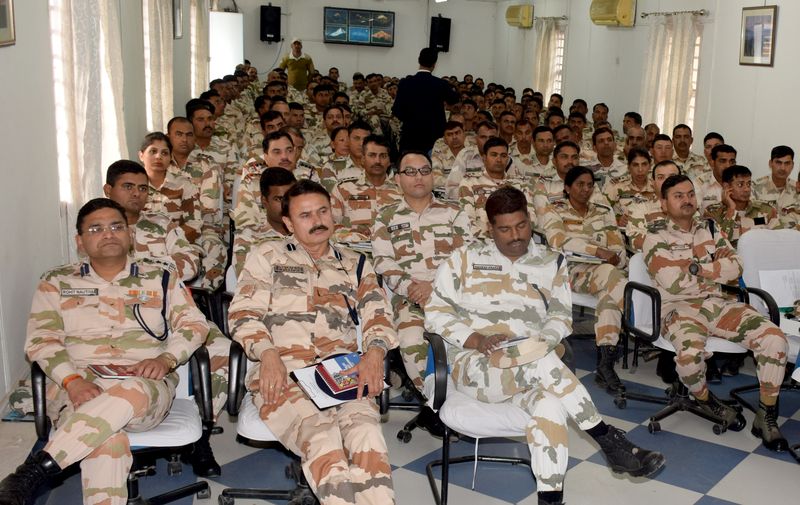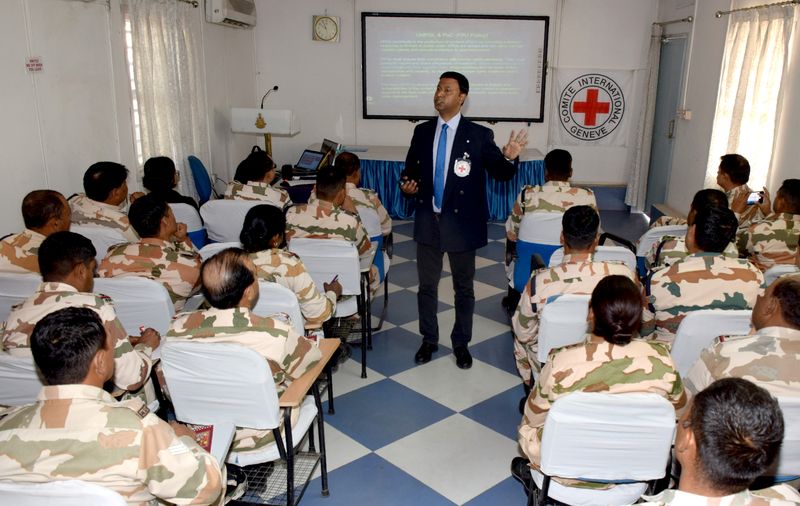The mandate of peacekeeping missions has evolved to include the protection of all those caught in the midst of conflict. With increasing international scrutiny on the outcomes of such missions, the need for pre-deployment briefings with peacekeeping troops has been repeatedly highlighted at various international forums. On 6-7 February 2018, the regional delegation of the ICRC in New Delhi organised briefings for 162 Indo-Tibetan Border Police (ITBP) officers and other ranks who are on their way to join MONUSCO – the UN peacekeeping mission in the Democratic Republic of the Congo (DRC).
The selected officers are part of the Formed Police Unit (FPU) contingent from India earmarked for United Nations Police (UNPOL) peacekeeping assignment. The objective of this training was to sensitise them on the ICRC, protection of civilians (PoC) and conflict-related sexual violence (CRSV), as well as the role of police and security forces.
Pre-deployment briefings aim at increasing the troops’ understanding of their mandate. The sessions conducted by the ICRC focus on applicability of international humanitarian law (IHL) and the organisation’s mandate and role. These also include sensitising the embarking troops on the issue of CRSV as part of PoC due to the lasting emotional, psychological and physical ramifications for survivors.

At the two-day briefing for 162 Indo-Tibetan Police Force (ITBP) officers and other ranks on their way to DR Congo to join the UN mission, MONUSCO. ©ICRC
The group of ITBP officers going for the mission includes four women officers from different parts of India. Women as peacekeepers not only provide a sense of security to the local population but they also serve as role models for the local communities and other contingents. Illustrating this point, Somnath Tiwari, Programme Manager (Police & Security Forces), ICRC New Delhi, spoke about the all-women Indian contingent in UNMIL, Liberia. He informed that the ICRC had conducted pre-deployment briefings and debriefing for the group and their work had earned them much appreciation.
Tiwari also talked about public order management – another component of PoC. He demonstrated the common mistakes, the importance of body language and spoke about opportunities to de-escalate a situation. Perception, contingency planning, preparation, and communication are important aspects of any mission. Tiwari emphasised that pre-deployment trainings go a long way in determining how peacekeepers work during missions and an accurate analysis of the context of the host country is key to help peacekeepers take the right decisions during moments of crises.


